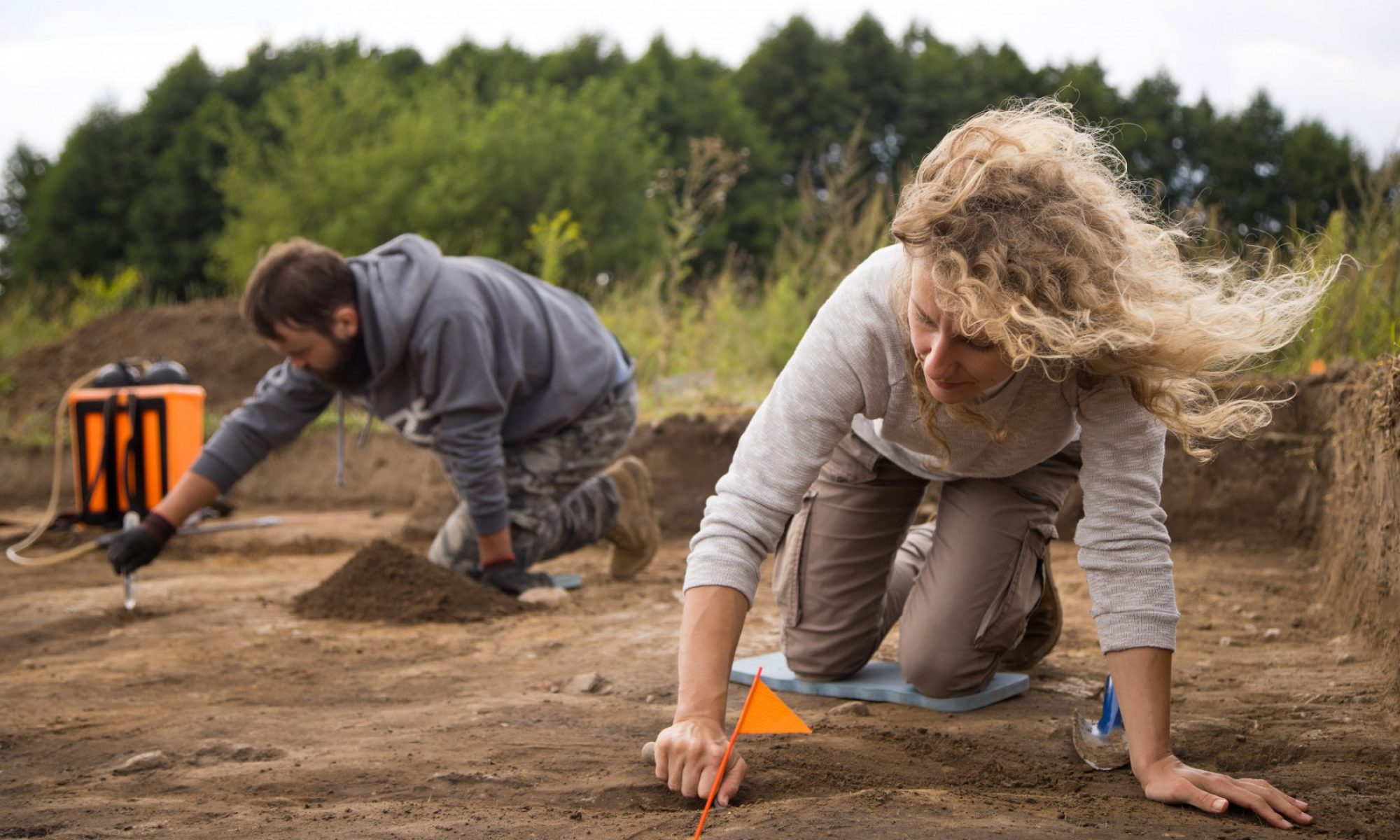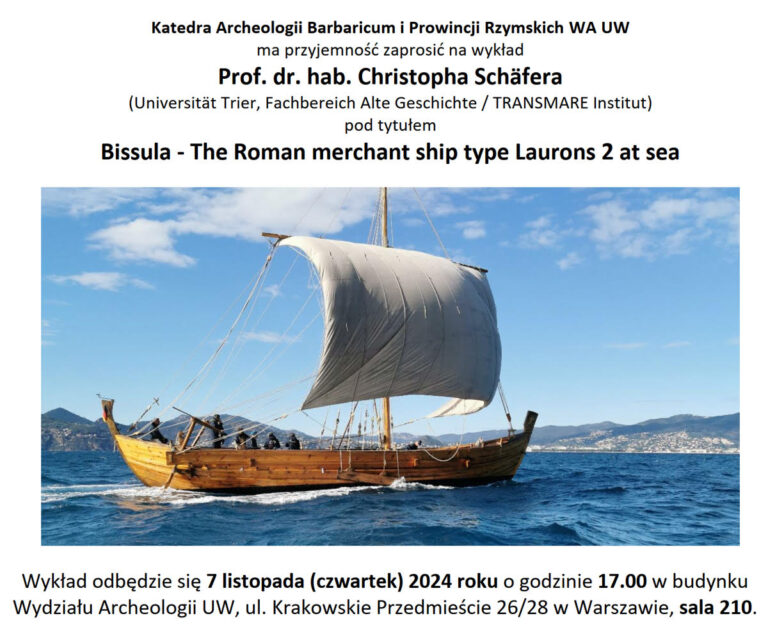![]() Katedra Archeologii Barbaricum i Prowincji Rzymskich WA UW na przyjemność zaprosić na wykład prof. dr. hab. Christoha Schäfera.
Katedra Archeologii Barbaricum i Prowincji Rzymskich WA UW na przyjemność zaprosić na wykład prof. dr. hab. Christoha Schäfera.
Abstrakt
The Bissula is a full-scale replica of a Roman merchant ship of the Laurons II type, built in 2017–2019 in a project funded by the German Research Foundation (DFG) by the University of Trier and Trier University of Applied Sciences together with students from various disciplines.
In 1978, several Roman shipwrecks were found in the Anse of Laurons near Martigues, between Fos-sur-Mer and Marseille. In ancient times, there was apparently a private natural harbour there. In the 1980s, several excavation campaigns were carried out. In addition to the wreck of Laurons II, the model for the Bissula, three other ships were also brought to light.
To determine the performance data of the Bissula, which is of intrinsic importance for the given research question, the Bissula was tested on the Moselle near Trier. The initial phase of the test series since the ship’s christening in July 2019 was mainly used to test the measuring systems and methodology, and in particular to train the ship’s crew.
In late summer 2023, the Bissula was relocated to the Mediterranean to complete the test series under significantly better and more realistic conditions.
O Autorze
Christoph Schäfer jest uznawany za jednego z wiodących ekspertów w dziedzinie starożytnej żeglugi i przekazywania wiedzy historycznej za pomocą multimedialnych pomocy dydaktycznych. Jego praca koncentruje się w szczególności na archeologii eksperymentalnej oraz rekonstrukcji i naukowej analizie rzymskich statków. Ponadto jest profesorem historii starożytnej i uznanym ekspertem w dziedzinie późnego antyku. W swojej rozprawie doktorskiej na temat senatu zachodniorzymskiego jako nośnika starożytnej ciągłości pod rządami królów ostrogockich przeanalizował debatę na temat końca starożytności. Od 2003 r. był profesorem na Uniwersytecie w Hamburgu, a w 2008 r. przyjął nominację na Uniwersytet w Trewirze, gdzie od tego czasu wykłada historię starożytną. Jego badania koncentrują się również na hellenizmie, historii gospodarczej i żegludze rzymskiej.


